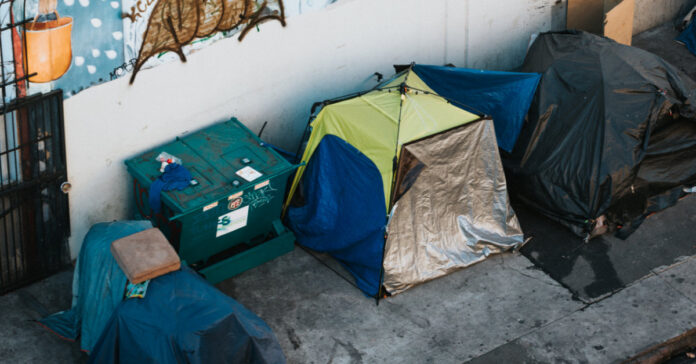As part of planning and preparing, it’s often a good idea to look at what is the worst-case scenario and then look for ways to increase your odds of survival.
Because we cannot predict the exact survival situation we may face, there is often no perfect solution. Our goal should be to improve our odds of survival, which means not only living through the disaster but being around when society recovers. Let’s look at a worst-case economic scenario for the United States.
I’m going to imagine stagflation on steroids call it staghyperflation. In this scenario, the U.S. dollar continues to lose value and prices rise rapidly while the economy crashes.
Worst Case Economic Scenario
Imagine by the end of the year, inflation has doubled and exceeds 15 percent. By December 2023, it’s at 108 percent, meaning everything costs two or three times what it did a year ago. (I know, when it comes to gas and food, this isn’t difficult to imagine.) Worse yet, it shows no signs of slowing. In 2024, inflation continues to increase monthly and reaches 1,000 percent by year-end. Gas is $63 a gallon. Your electric bill was $2,000 to $3,000 per month in this summer, and you expect it will cost more than $50,000 to heat your house for the winter.
After they raised her rent, your sister and her kid moved into your guest room. At first, it was annoying to have the house so crowded, but now you are thankful as her unemployment check and stimulus payments are helping to keep your head above water. Her child support is a joke. You remember when $400 every two weeks made a difference, but today it barely pays for the food he eats. Her lawyer charges $1,800 an hour, so she can’t afford to go to court and get it increased.
You haven’t worked for nine months. The unemployment rate is 29 percent, so your chances of getting a job are slim. They extended your unemployment insurance payment, but it isn’t even enough to buy groceries. Thank God you didn’t have an Adjustable Rate Mortgage. Your mortgage is one of your lowest bills, so you don’t worry about losing the house. Whether you can pay for all your utilities is another question. Unfortunately, you have to make any home repairs yourself. Just to have a handyman come and give you a quote costs $850 and there’s no guarantee he’ll be able to find the parts to do the job. The local Lowes closed and you’ve heard Home Depot has more empty shelves than full, just like Walmart and Target. Well, you’ve got time on your hands, so you might as well fix the flashing on the chimney yourself.
Whenever the two sides of the aisle can agree, the government sends out stimulus checks. Because of your two kids, you and the wife get $8,000 last time, but the money didn’t last until the end of the month. Your sister gets four grand and gave you three towards expenses. That helped you catch up on the electric bill.
Your wife is shopping as carefully as possible, but the bill for her last weekly shopping was trip $1,187 and she didn’t even buy any meat, just some chicken broth. She was so thankful they had bottles of laundry detergent for $99.99 that she bought two, which was the limit. Your sister walked down to the store the next day and got two more. She reported that there were additional armed guards on hand because a gang had been robbing people as they left the store.
Thank God for the ration coupons. The government gives each of you 10 gallons of gasoline per month, two gallons of milk, a dozen eggs, five pounds of flour, four pounds of rice or pasta, two pounds of beans and four loaves of bread. You’ve noticed that the loaves are getting smaller, but at least the stores can’t cheat you on eggs. This is helping feed the family, and you’re able to trade a bag of flour with a neighbor for a few bottles of home-brewed beer. You’ve been saving up on the gas coupons, hoping to trade or sell them to help cover the heat bill.
A few weeks ago, the guy three houses down freaked out, killed his wife and daughter and then sat down on his front porch, stuck the gun in his mouth, and blew his head off. I took the police five hours to show up. As they were walking through the front door, looters were running out the back. They had ransacked the house, taking anything of value, including the murder weapon. You are thinking of asking Walt and his 16-year-old boy to stand guard one night while you use your metal detector to see if the dead guy had buried anything in the backyard. Some people did.
Your wife tried growing vegetables in the back yard, but her garden failed. You planted a few pot plants and they did better. While you take an occasional hit to relax, the real value was in selling or trading it. You smile, thinking about the time you traded a few ounces for eight ground beef patties. Everybody had a hamburger that night, and your wife saved two to add meat to the spaghetti sauce. That was a great week!
You hardly ever leave the house anymore. It’s depressing to see the homeless and their tent cities and run-down RVs. Besides, with no money, there’s nowhere to go. You sit around and play video games with the kids, watch TV after they go to bed, and then try to sleep as late as possible. Your sister dresses up and goes out every week or two. You don’t know if she is turning tricks or has a boyfriend, but you hope it’s the former; you don’t want her to move in with some guy. It would wreck your budget.
Your wife is holding up pretty well, but you hear her cry sometimes at night after she thinks you’re asleep. You can’t blame her. The future looks grim.
How Can you Survive That?
Yes, that is a grim scenario, but it could actually be worse. There were no kidnappings for ransom, no riots, no bribes required in return for services, no debtor’s prison, no home invasion robberies, and the government was continuing to provide unemployment and stimulus payments. Sure, those payments are probably making inflation worse, but they were also keeping people alive. That’s what makes it a vicious circle.
How can you survive that? Here are a few tips:
Do whatever it takes to avoid being homeless. Letting someone else live with you to cut expenses and pool resources is a good idea. Multi-generational families living in one house were common 100 years ago. We may see it return.
Pay the electric bill. If you have a well, power also means water and it may mean heat. Look into social services and charitable organizations for help pay your utilities.
Try to keep your job. Having some money coming in is better than having no money. It may also give you opportunities. While no job guarantees during a massive depression, working for a state or institution like the school district might be close, especially if you have seniority or tenue. Whatever you do, don’t retire during hyperinflation; your retirement savings or pension will quickly become worthless.
If you can’t keep your job, then look for opportunities to make money off the books.
Go in Strong
If you go into a recession in good financial shape, you are more likely to survive it. Eliminate debt. Pay off your car and your home. If possible. Don’t have anything a bank or other institution can foreclose on or repossess and you won’t have to worry about losing it.
Spend before inflation. Although buying at the top of the real estate market sucks, if you own a new house with a warranty from the builder and all new appliances, you should not have to fork out for repairs during the first five to ten years (assuming the builder does not go bankrupt or close). By that time, the value will probably be back up. In May of last year, I wrote about a farmer who bought all new equipment and sold his old equipment on the used market. He did this to prepare for inflation and to avoid repair costs. In hindsight, that was a very smart move.
Buy distressed assets. If you have money, you will be in a position to buy things from people who don’t and are trying to raise money. That might include homes you can then rent out to generate income. It might be tools or equipment. For example, residential landscapers will not have much business when money grows tight. You might be able to pick up a professional quality zero-turn mower or a backpack leaf blower for pennies on the dollar. Expensive toys like boats and four-wheelers might come on the market. There will also be bankruptcy auctions where you can get good deals.
Be Prepared
I don’t care if you were prepping to survive nuclear war, a comet strike like the one that killed the dinosaurs, or for the next deadly virus, any prepping you have done would be useful in the above scenario. For example, that family would be better off if they had a year’s worth of food in storage. If they had a few bottles of laundry detergent in their prepper stash, they wouldn’t have had to spend $100 per bottle. If they owned a retreat, they could move there and sell the main house. That might help them cut their expenses and raise some funds.
Will the future be that bad? I hope not, but we might be moving in that direction. Even 20 percent inflation would be devastating. I encourage you to continue to prep; there’s very little downside to it.









